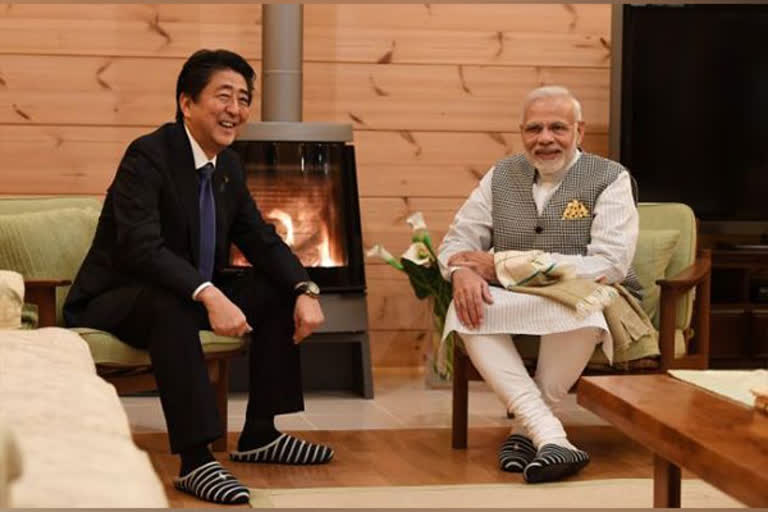New Delhi:Prime Minister Narendra Modi left for Tokyo, Japan Monday evening to attend the state funeral of former PM of Japan Shinzo Abe to be held on Tuesday.
"I am traveling to Tokyo tonight to participate in the State Funeral of former PM Shinzo Abe, a dear friend and a great champion of India-Japan friendship. I will be conveying heartfelt condolences to Prime Minister Kishida and Mrs. Abe on behalf of all Indians. We will continue working to further strengthen India-Japan relations as envisioned by Abe San," PM tweeted on Monday afternoon.
Earlier in the day, Foreign Secretary Vinay Kwatra, during a special briefing on the PM's visit, said the PM will attend the State funeral ceremony at Budokan which will be followed by a greeting occasion at Akasaka Palace in Tokyo. "PM Modi will also meet PM Kishida and Mrs Abe during this visit. We understand that representatives from over 100 countries, including more than 20 Heads of State & Heads of Govt, are expected to participate in the State funeral tomorrow," Kwatra said.
The visit by the PM will be an opportunity for him to honour the memory of ex-PM Abe, who he considered a dear friend and a great champion of India-Japan relationship. PM Modi and PM Abe had developed a personal bond of trust and friendship through their numerous interactions spanning over a decade, the FS said.
Abe, Kwatra said, made significant contributions to deepening India-Japan relations, turning a largely economic relationship into a broad, comprehensive, and strategic partnership, making it pivotal for the two countries and the region’s security.
Also read: EXPLAINER: Why is Japan split over Abe's state funeral?
"PM Abe made significant contributions to deepening India-Japan relations, turning a largely economic relationship into a broad, comprehensive, and strategic partnership, making it pivotal for the two countries and region’s security," he said. The foreign secretary Kwatra recalled Abe's famous "Confluence of Two Seas" speech in the Indian Parliament in 2007 that laid the ground for the emergence of the Indo-Pacific region as a contemporary political, strategic, and economic reality.
